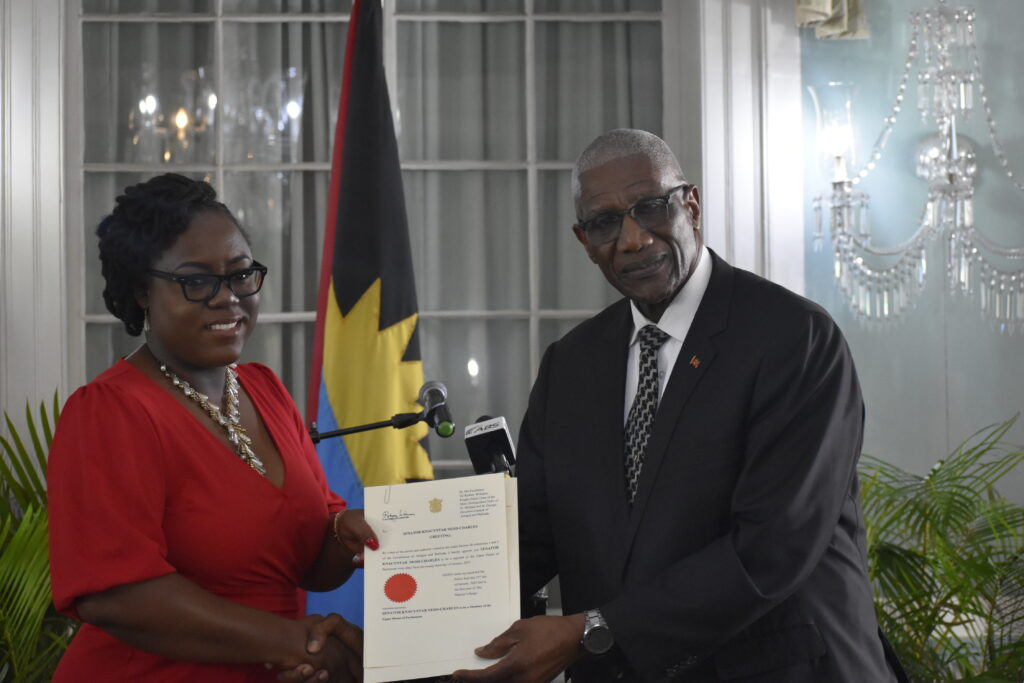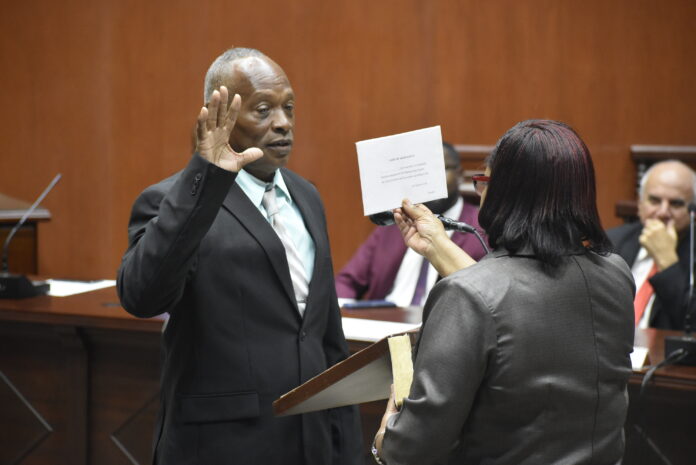By Elesha George
The enforcement of the Registered Land Amendment Bill of 2023 is being scrutinised for its potential to restrict the jurisdiction of the Barbuda Council. The Bill, which recently passed the Upper House without amendments, aims to modernise land ownership and registration processes in Barbuda, aligning them with the practices in Antigua.
However, concerns have been raised over the possibility of the Bill to decentralise the decision-making power over land-related matters that have traditionally fallen under the Barbuda Council’s purview.
The proponents of the Bill, led by the Antigua and Barbuda Labour Party (ABLP), argue that its implementation will usher in a new era by streamlining land ownership records, reduce property disputes, and enhance the efficiency in property transactions on the sister island. They intend for the system to benefit both the government and the populace.
Yet, Senator Fabien Jones, a representative of the Barbuda People’s Movement (BPM) in the Upper House of Parliament has expressed reservations about the potential repercussions on the Barbuda Council’s historical authority. Part II of the Barbuda Local Government Act currently empowers the Barbuda Council with significant privileges, including the ability to purchase, acquire, hold, mortgage, and dispose of land and property within the island. The Registered Land Amendment Bill, if enacted, could potentially reverse these powers, vesting them directly in the Crown through the governmentt.
He contends that the proposed changes could result in a conflict with the existing provisions of the Barbuda Local Government Act, which govern the Barbuda Council’s responsibilities. The Council’s power over land is also enshrined in the Constitution of Antigua and Barbuda. Senator Jones therefore asserted that proper consultation, in line with the Constitution, is crucial before any alterations are made to the jurisdiction of the Council.
“We’re going to have a conflict here. The Council has the power to administer land in Barbuda, and now you’re going to say that someone else after this time will have that power to deal with land in Barbuda,” Senator Jones emphasised. He recommends a separate legislative act that specifically addresses land matters in Barbuda, preserving the Barbuda Council’s role in property-related affairs on behalf of the government.
Highlighting the significance of consultation, Senator Jones underscored the Constitutional requirement that mandates that any changes to the Barbuda Local Government Act be referred to the Barbuda Council for its consent before being considered as law.
According to the country’s Constitution, a Bill to alter any of the provisions in the Barbuda Local Government Act “shall not be regarded as being passed by the House unless after its final reading in that House the Bill is referred to the Barbuda Council by the Clerk, of the House and the Barbuda Council gives its consent to the Bill by resolution of the Council, notice of which shall forthwith be given by the Council to the Clerk of the House.”
“We are not prepared to go through with this without any sort of consultation because I’m telling you, the people of Barbuda, they have been listening to what is happening and they’re not prepared to abide by what is here unless there is consultation and decision made by the people.”
“I suggest that before we go ahead and push through this Bill to become law that we send recommendations to the Lower House to have the matter discussed with the Barbuda Council and the people of Barbuda,” he insisted.
The Registered Land Act is based on a cadastral survey conducted in 1976 in Antigua and although the government said a cadastral survey has recently been completed for Barbuda, amendments to the fact is not reflected in the Bill.
For that reason, Minority Leader in the Upper House, Shawn Nicholas agrees that some justification must be given to Barbudans for the current amendments.
“It’s something that we should give consideration to,” she said, adding “there has to be some sort of buy-in to get the people who you want on board to become part of it.”
Knacyntar Nedd-Charles, the ABLP’s Barbuda representative in the House offered her contribution to the Bill, asserting that the current state of land issuance in Barbuda is far from ideal under the Barbuda Council’s management. She criticised the existing distribution process, stating that it has led to family conflicts and multiple individuals being allocated the same plots of land.

“The way in which lands are being administered, the way in which it is being handled, it is not right, it is not effective and it is not lawful,” Nedd-Charles said.
Ending debate on the Bill, Leader of Government Business, Samantha Marshall, reminded that the Barbuda Council is not a government unto itself, but an institutional arm of the State government.
“This government has said that all Barbudans are entitled to an opportunity at generational wealth and that is why they’ve offered land to each Barbudan – a $1.00 per acre,” she stated.
She noted however that the Bill is much bigger than allowing ownership to Barbudans, but offers an opportunity for both Antiguans and Barbudans to work together to develop the island.
The next step to make the amendment of the Registered Land Bill law, will be to publish the changes in the government gazette.

